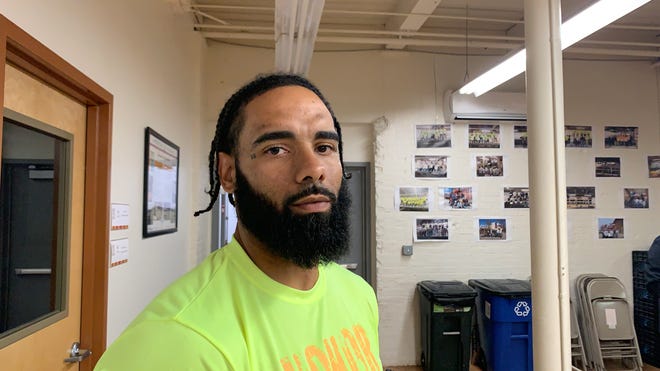PROVIDENCE − The United Way has awarded $1.5 million across 15 organizations from a pot of reparations money allocated by the City of Providence from federal stimulus funds.
All but one of the 15 groups picked (122 applied) by the United Way, which is administering the funds, will receive the maximum amount of $100,000 split over two years.
Mayor Brett Smiley previously stuck to his predecessor’s $10 million outlay from federal American Rescue Plan Act, or ARPA, funds.
During a press conference announcing the awards on Wednesday, City Councilor Mary Kay Harris lauded the fund allocations and cited a program similar to Building Futures, one of the awardees, for helping her to become a welder.
No strings attached to the money
Building Futures, a program that trains people for apprenticeships in building trades, hosted the press conference for the announcement and the group will receive a total of $100,000 to supplement its Inside program, which takes place inside the state’s minimum security prison.
That program is funded by a $900,000 Department of Justice Grant, but the reparations will pay for things that the Department of Justice money can’t be used for, like rental assistance for people recently released from prison, work clothing, supportive services and stipends.
“There’s a long list of things it will help,” Building Futures Spokeswoman Rachel Miller said. She is also the Providence City Council president.
‘Traumatic’:How Route 195 uprooted the Cape Verdean community in Providence’s Fox Point
The program, and the extra funding, allows Building Futures ease the transition for its recently incarcerated students, she said.
“On someone’s release, we’re able to say, ‘Building Futures should be your first phone call,'” Miller said.
That was true for Lemar Wilburn, who spoke during the program. For the first eight years of the 13 years he served in prison, he was a self-described “knucklehead.” Incarcerated at 18, he was released on parole in June at age 32, after serving part of a 35-year sentence for the murder of Princeton Miller Jr. in May 2011.
Released on a Wednesday, he was at the Building Futures program and working in the pre-apprenticeship program the following Monday. He hopes to become a carpenter, the skill he was learning while in the minimum security facility. Shortly after his release, he received his first ever paycheck.
‘Urban renewal:’How the Providence Preservation Society will atone for ‘racist practices’
“If I didn’t find it, I don’t know what I would do,” he said.
Which groups received reparations?
Of the 15 groups, all but one received the maximum, $50,000 each year for two years. The Center for Indigenous Peoples Rights was awarded $29,300 a year, the amount they requested.
The exact programs or activities being funded, with the exception of Building Futures, are unclear, as the news release only listed broad categories:
Where has the rest of the money gone?
So far, $5.5 million has been allocated and $4.5 million has been spent, including $300,000 for two programs at the Dirt Palace and millions to various United Way programs.
Thanks to our subscribers, who help make this coverage possible. If you are not a subscriber, please consider supporting quality local journalism with a Providence Journal subscription. Here’s our latest offer.
Reach reporter Wheeler Cowperthwaite at wcowperthwaite@providencejournal.com or follow him on Twitter @WheelerReporter.



